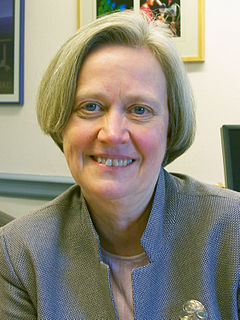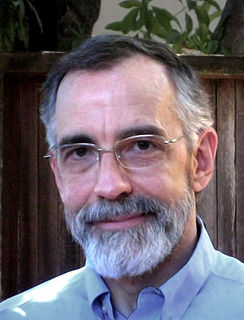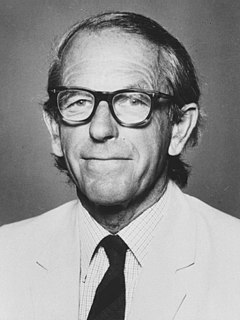A Quote by Susumu Tonegawa
I became fascinated by the then-blossoming science of molecular biology when, in my senior year, I happened to read the papers by Francois Jacob and Jacques Monod on the operon theory.
Related Quotes
The second half of the 20th century was a golden age of molecular biology, and it was one of the golden ages of the history of science. Molecular biology was so successful and made such a powerful alliance with the medical scientists that the two together just flourished. And they continue to flourish.
The fact of evolution is the backbone of biology, and biology is thus in the peculiar position of being a science founded on an unproved theory -is it then a science or a faith? Belief in the theory of evolution is thus exactly parallel to belief in special creation - both are concepts which believers know to be true but neither, up to the present, has been capable of proof.
The big idea we start with is: "How is the genome interpreted, and how are stable decisions that affect gene expression inherited from one cell to the next?" This is one of the most competitive areas of molecular biology at the moment, and the students are reading papers that in some instances were published this past year. As a consequence, one of the most common answers I have to give to their questions is, "We just don't know."
It is now widely realized that nearly all the 'classical' problems of molecular biology have either been solved or will be solved in the next decade. The entry of large numbers of American and other biochemists into the field will ensure that all the chemical details of replication and transcription will be elucidated. Because of this, I have long felt that the future of molecular biology lies in the extension of research to other fields of biology, notably development and the nervous system.
The students of biodiversity, the ones we most need in science today, have an enormous task ahead of molecular biology and the medical scientists. Studying model species is a great idea, but we need to combine that with biodiversity studies and have those properly supported because of the contribution they can make to conservation biology, to agrobiology, to the attainment of a sustainable world.
I was finishing up at High School of Performing Arts and finally, by the end of junior year and start of senior year, made some progress as a 16 year-old classical saxophone player. But not really... not like how the legit cats do. But I love the [Jacques] Ibert, love [Alexander] Glazunov, love the [Paul] Creston.

































